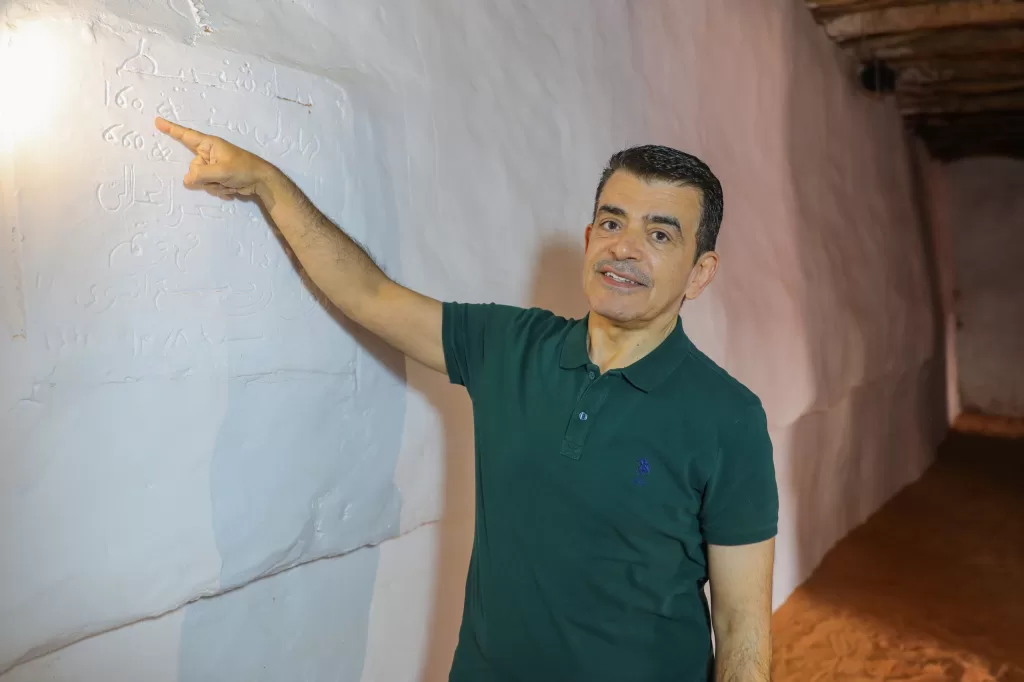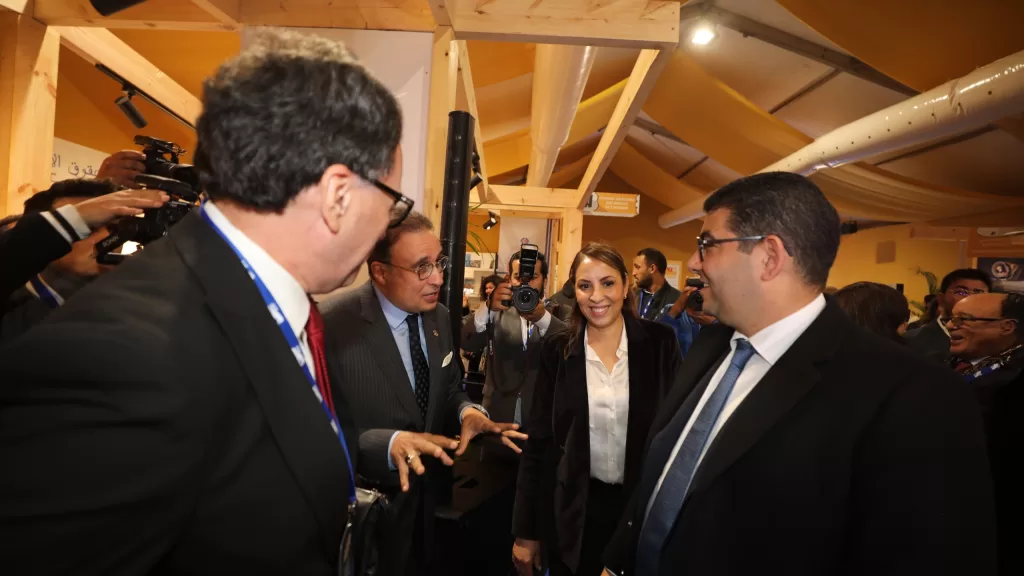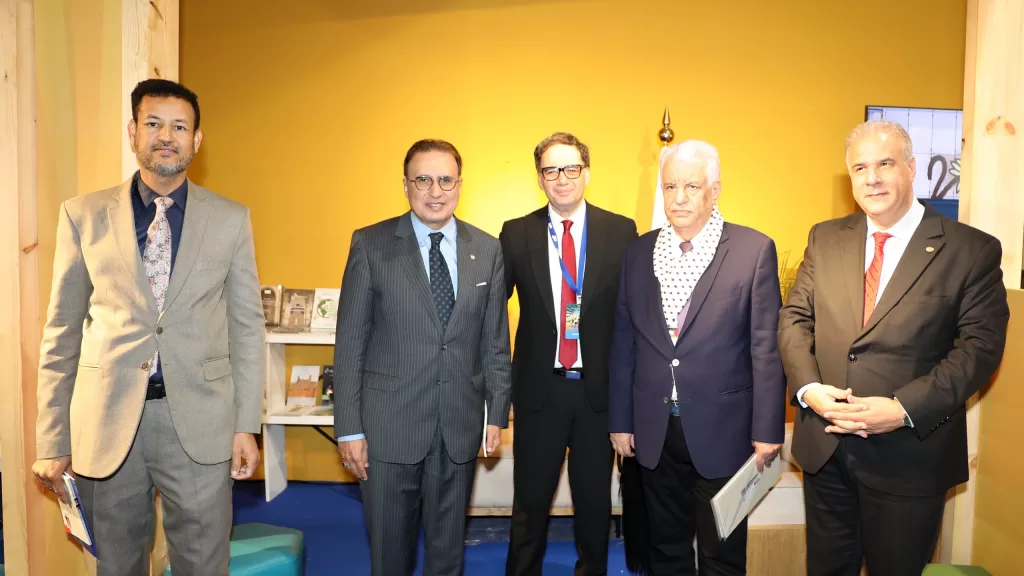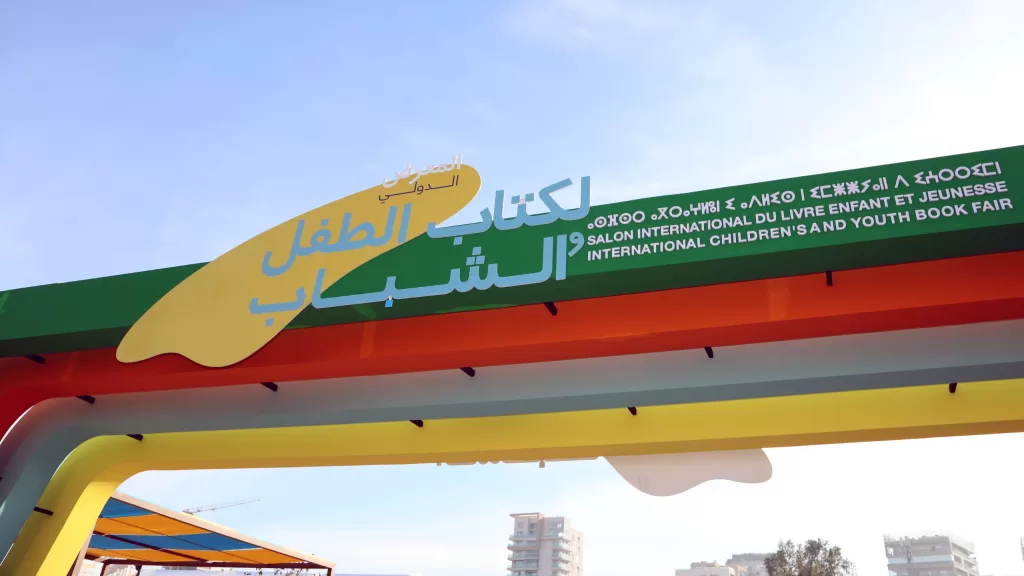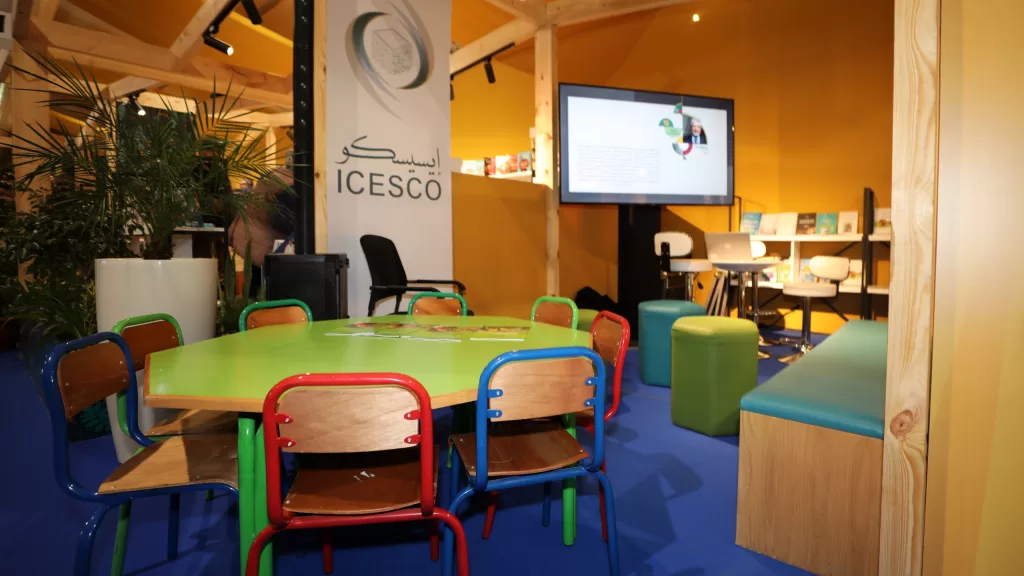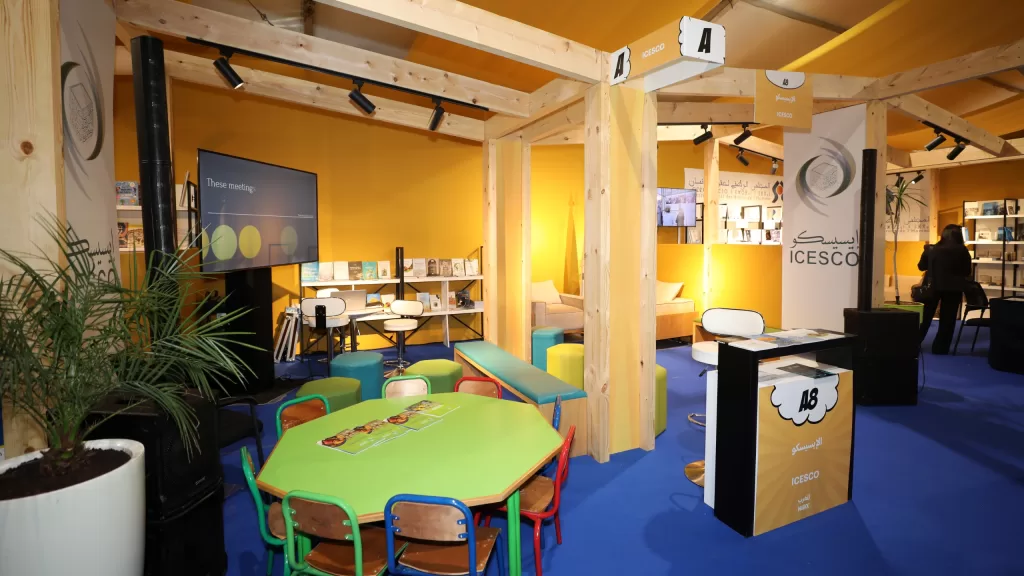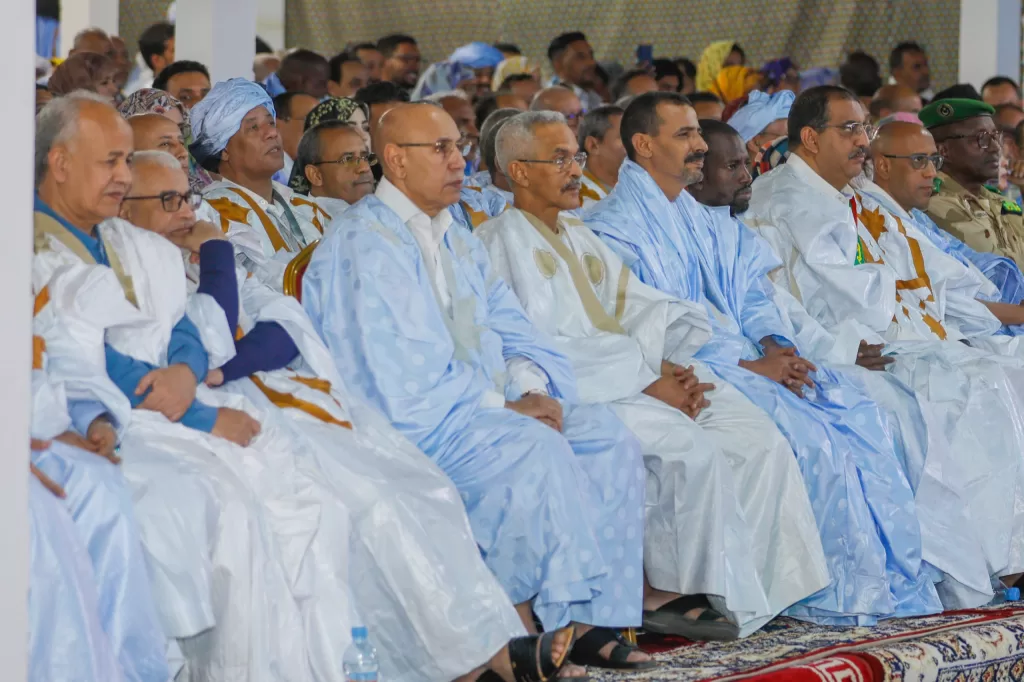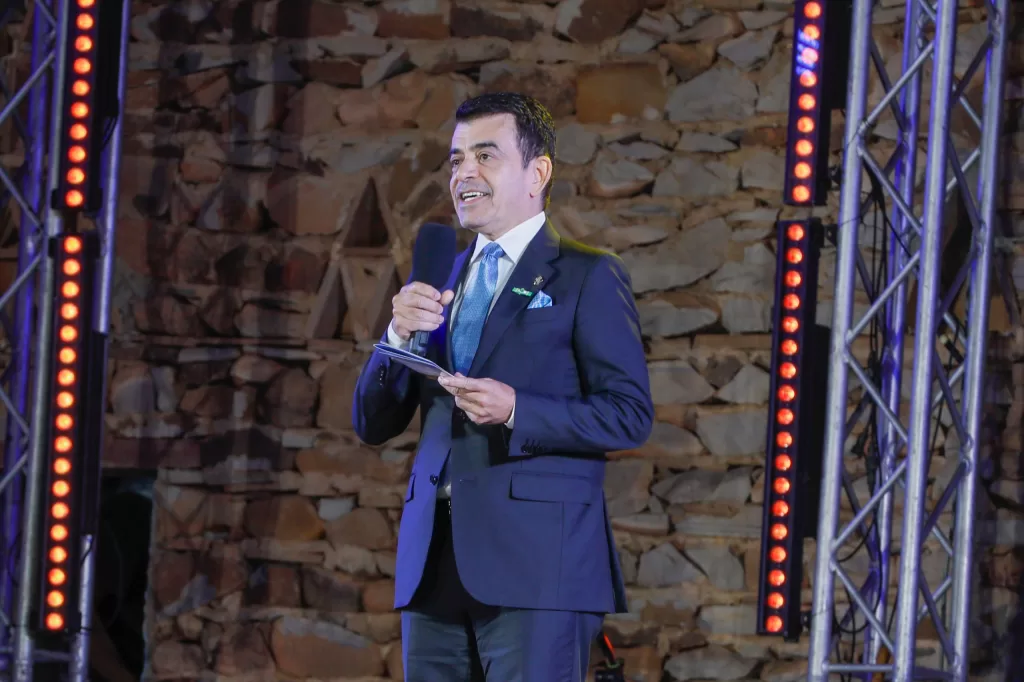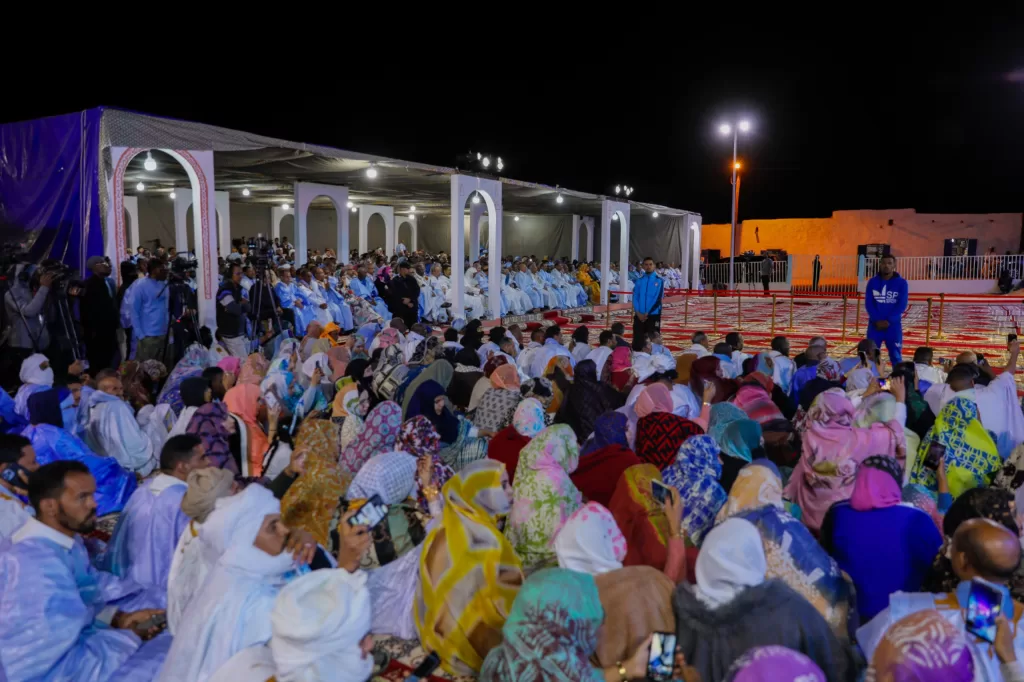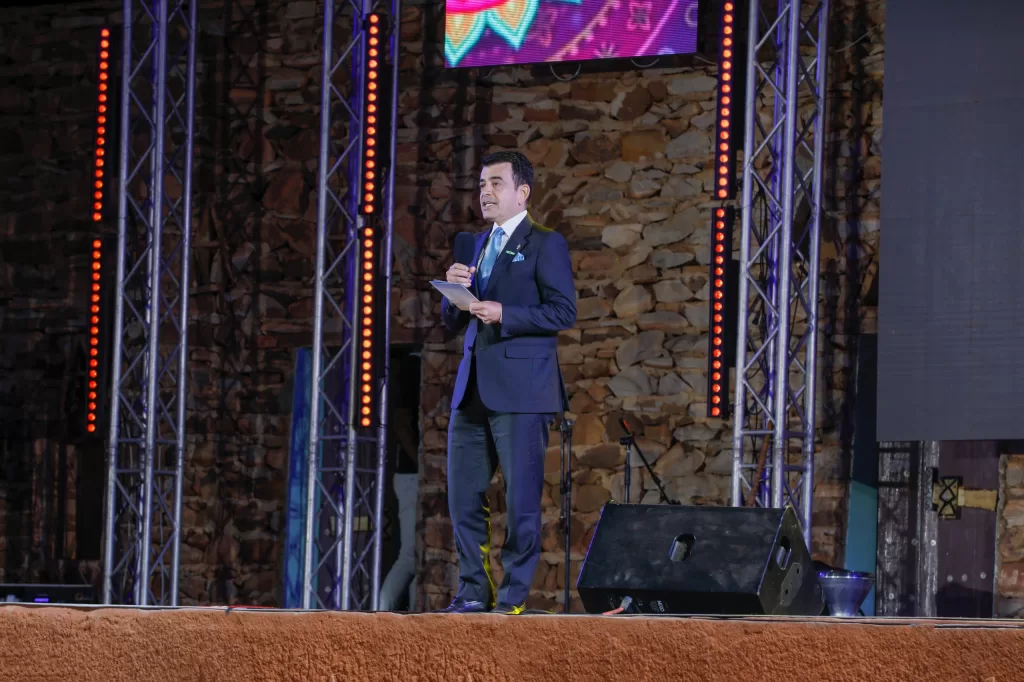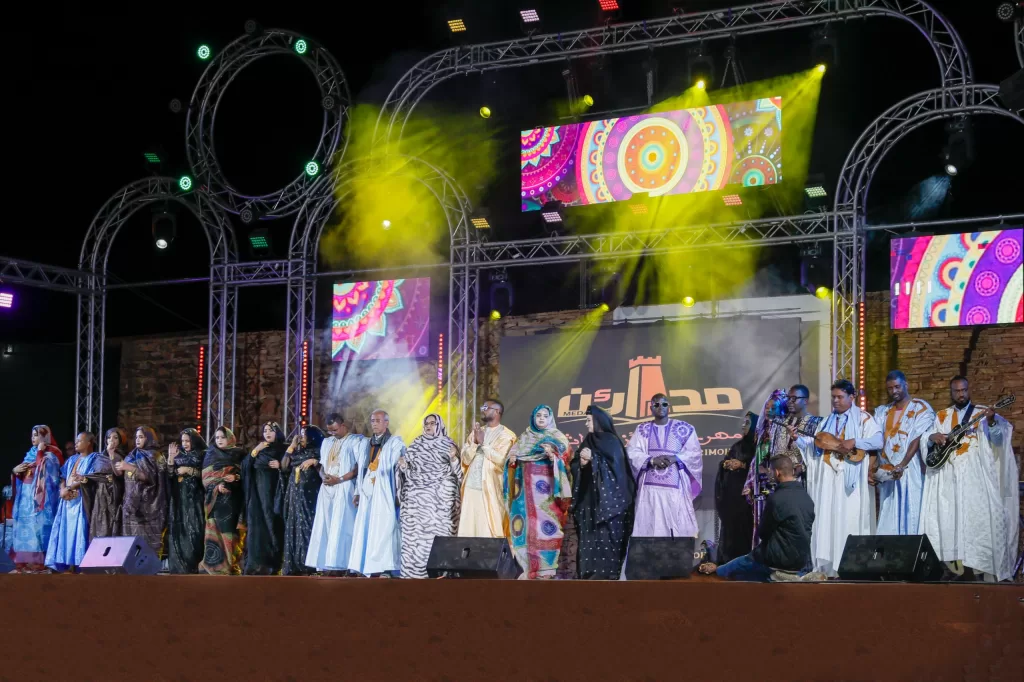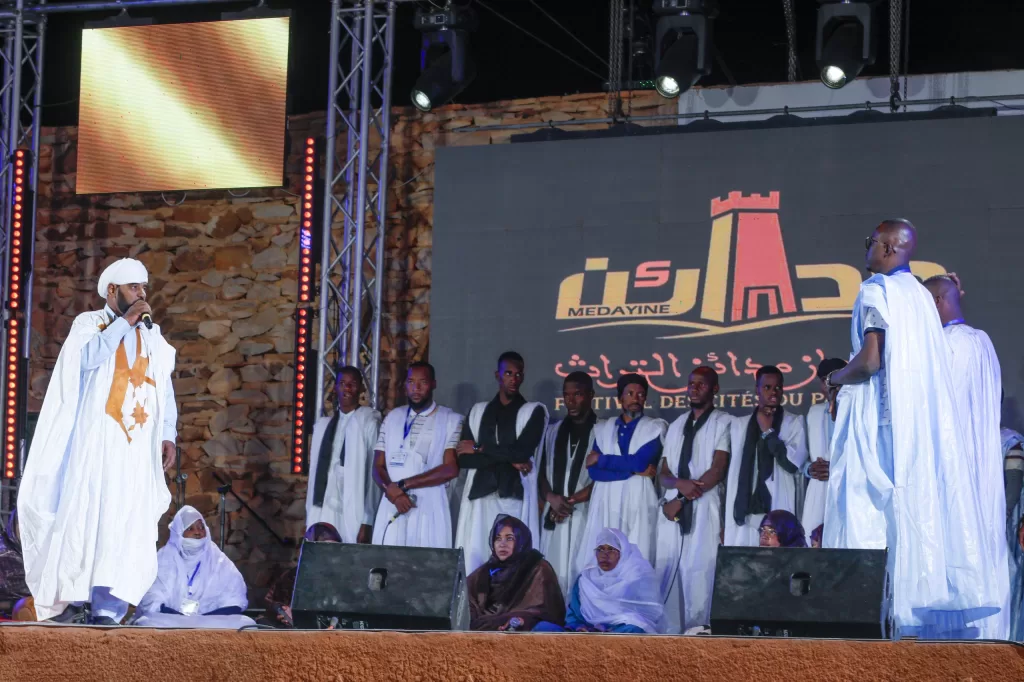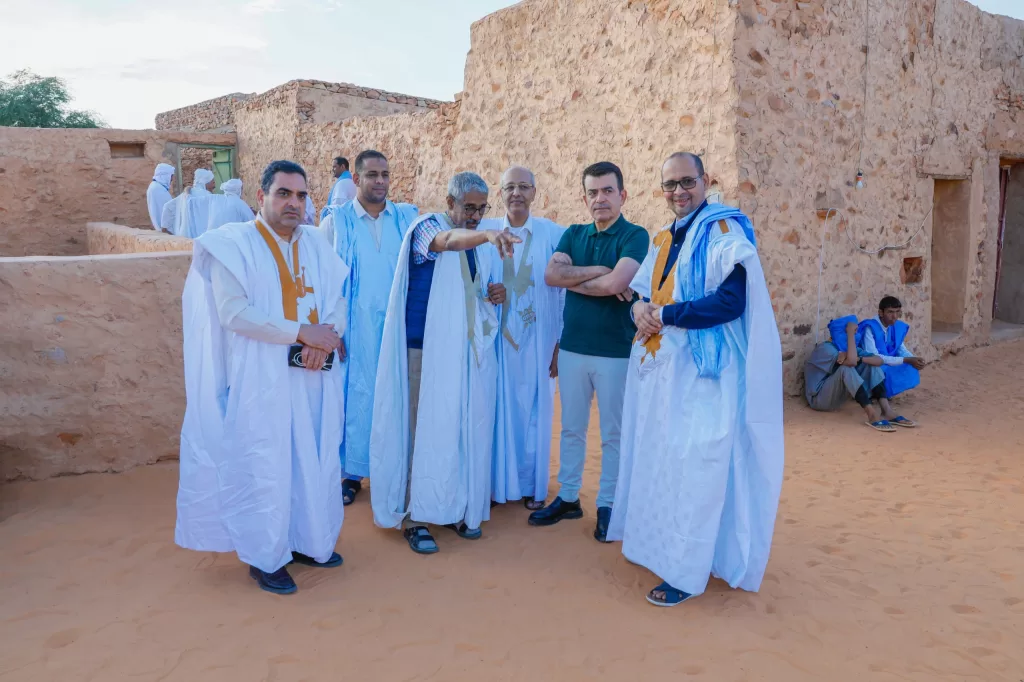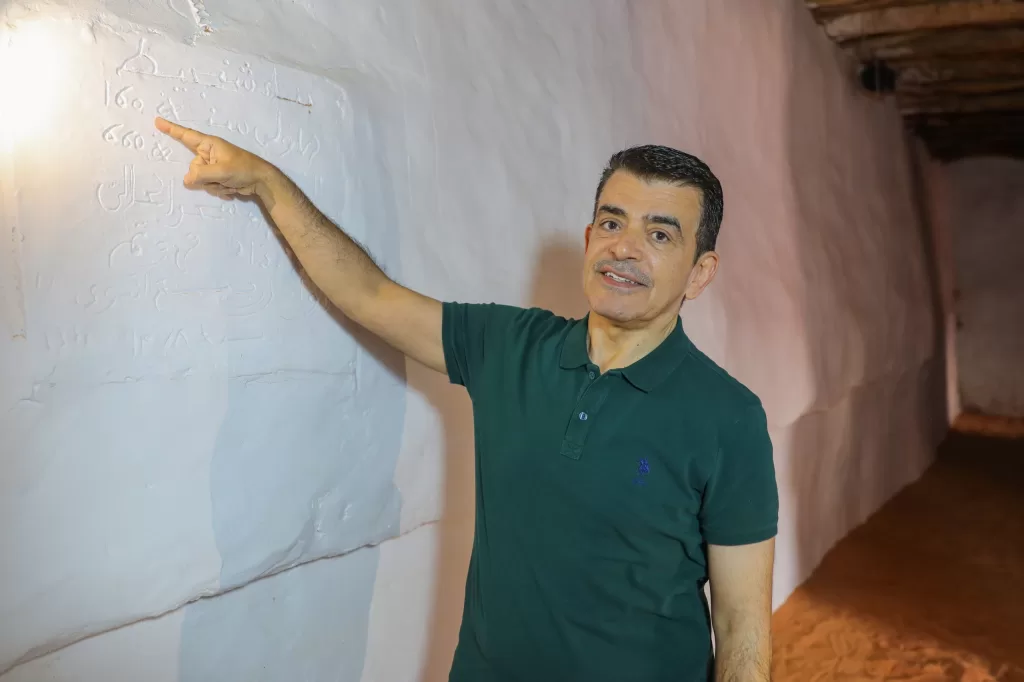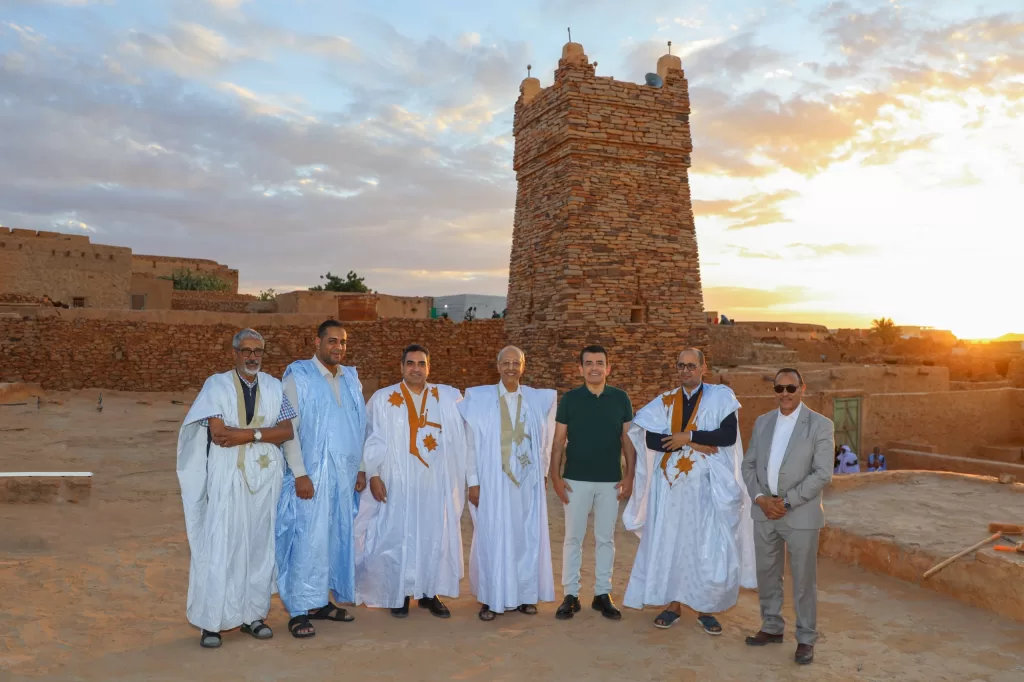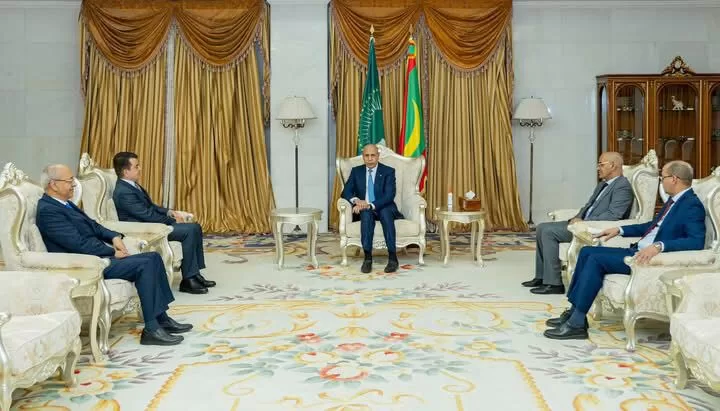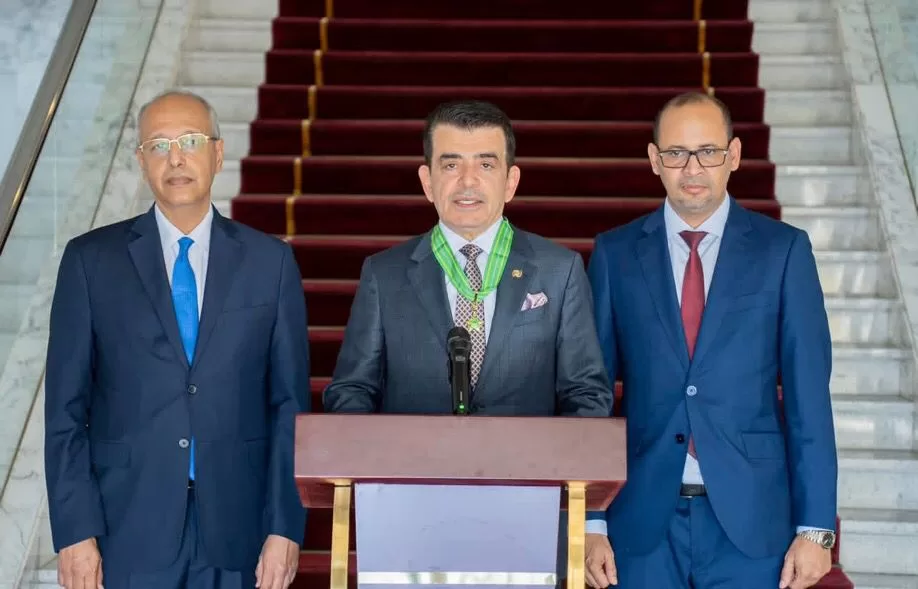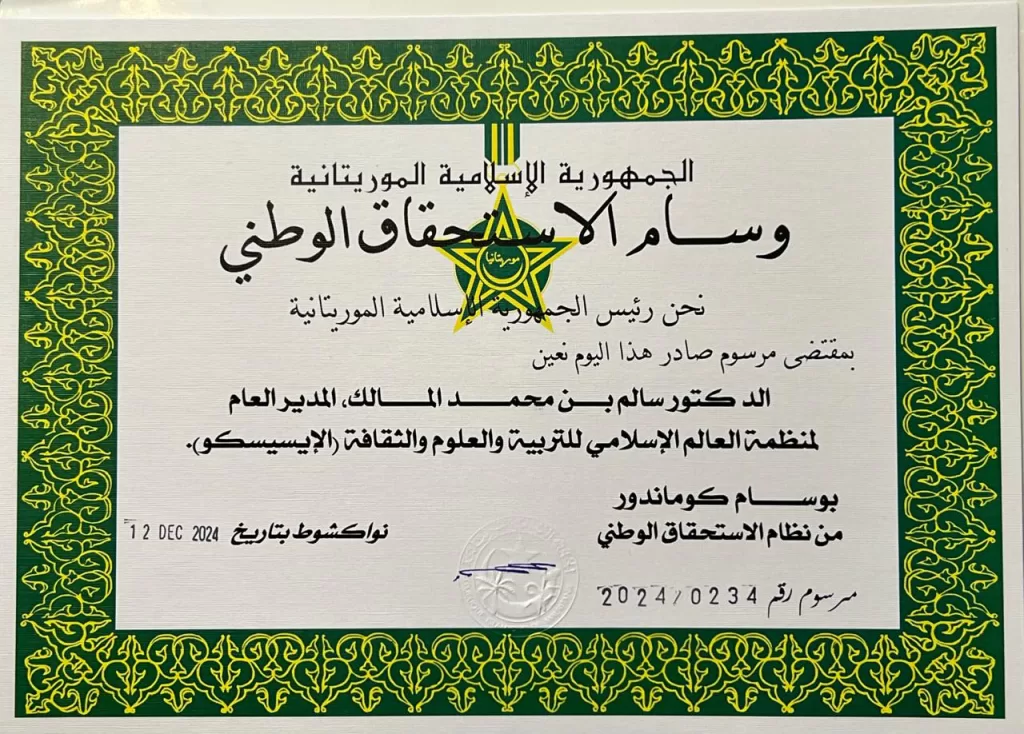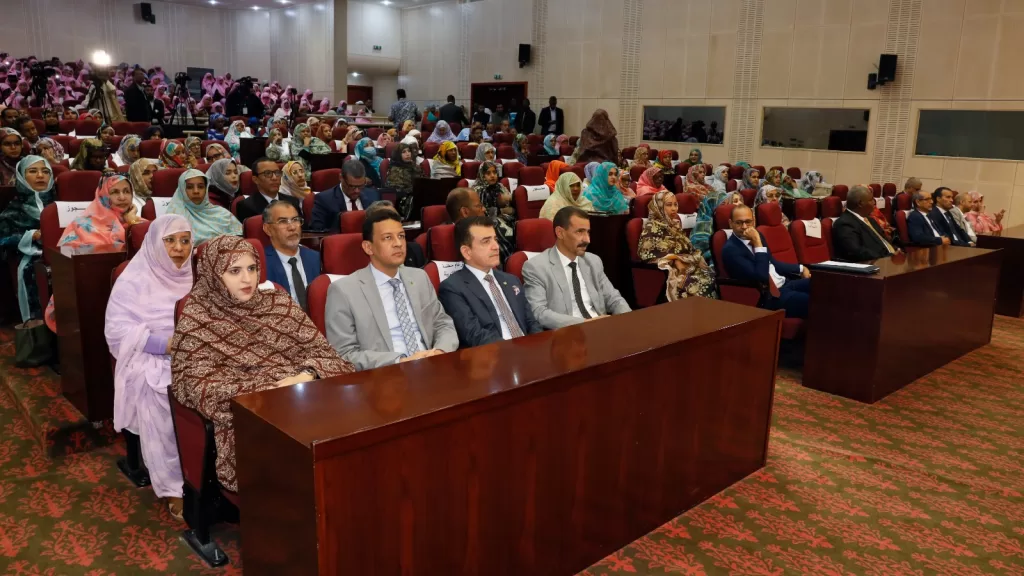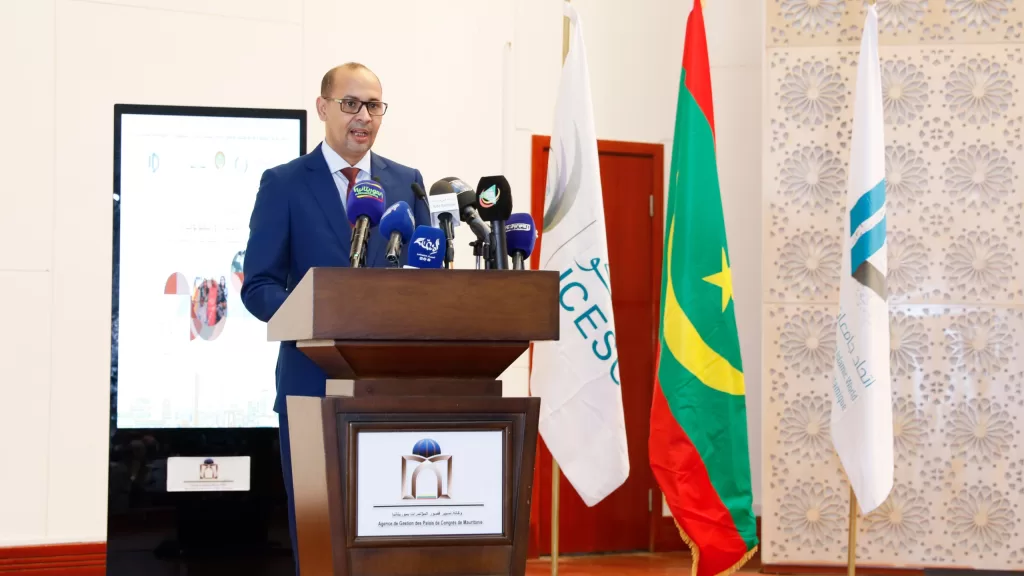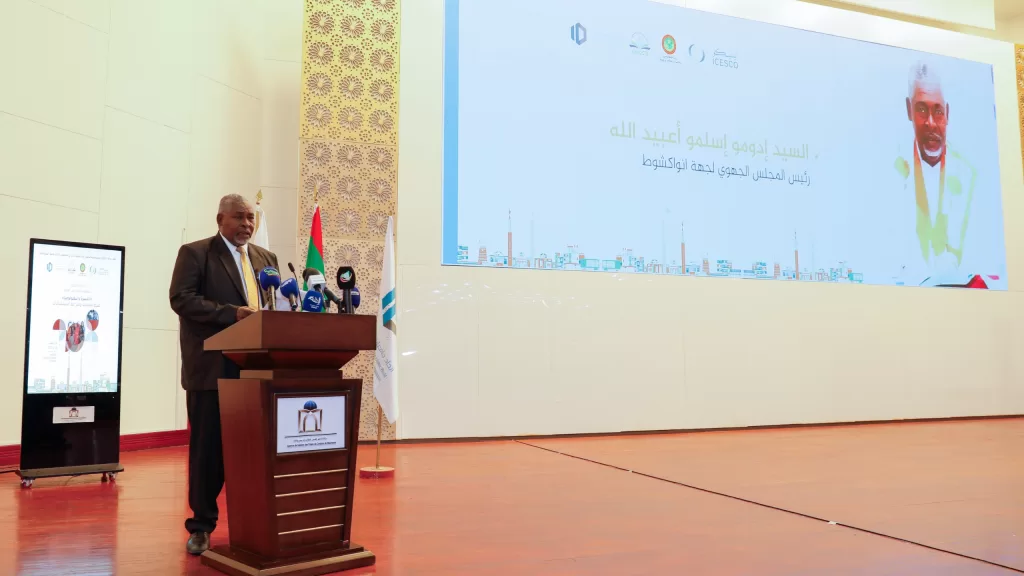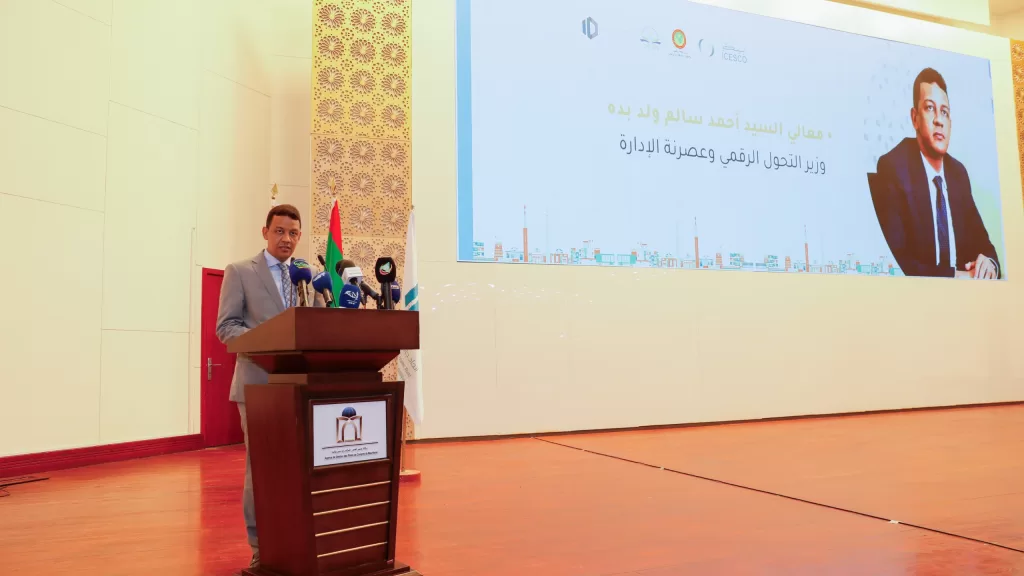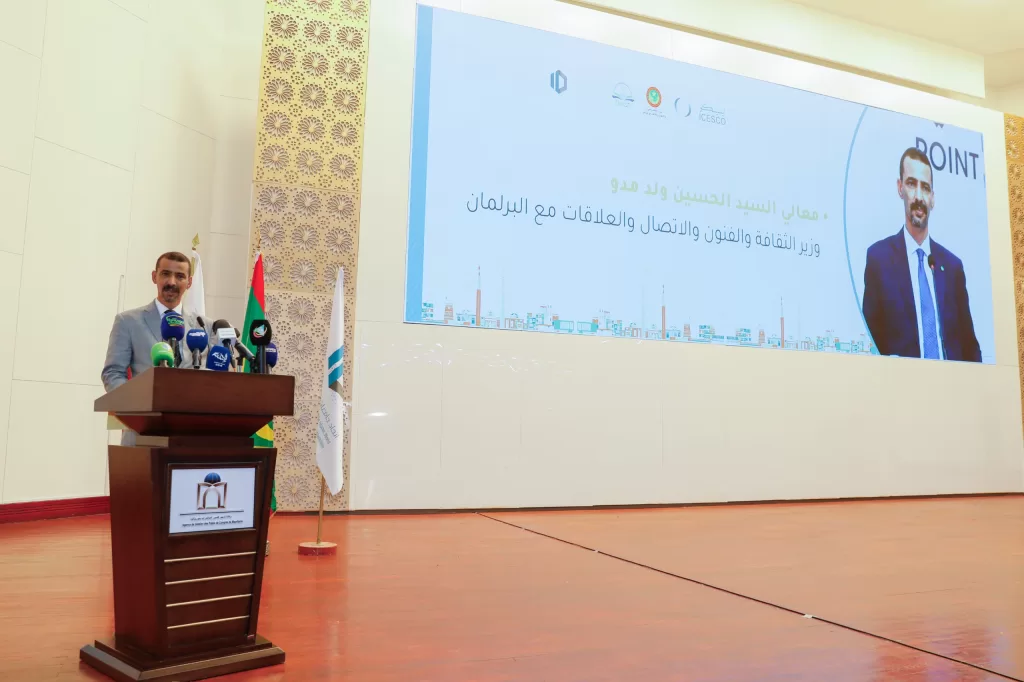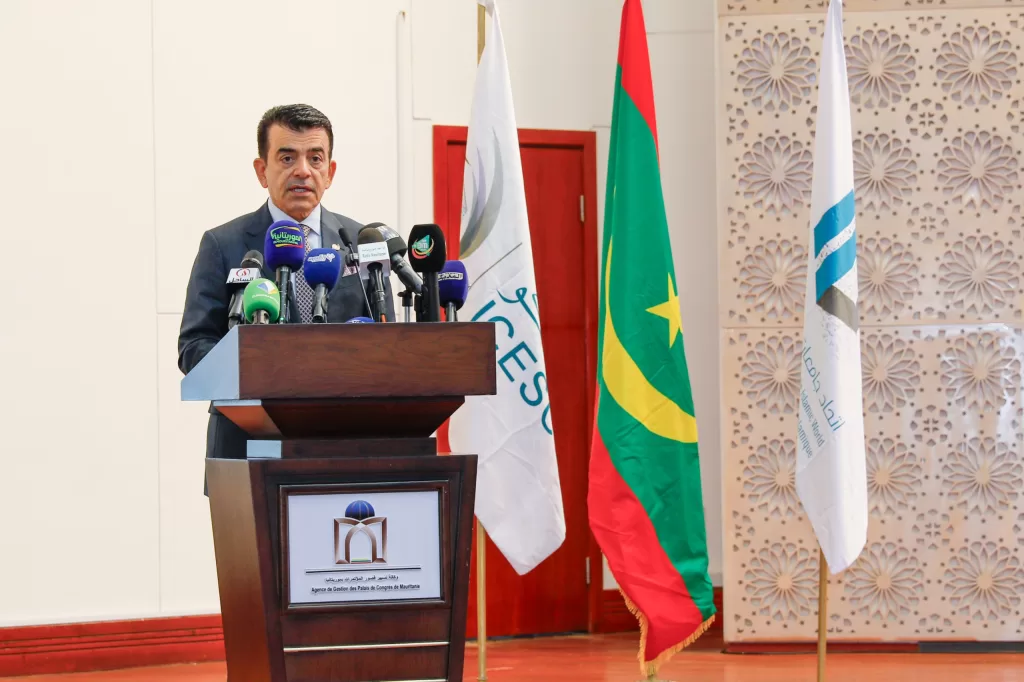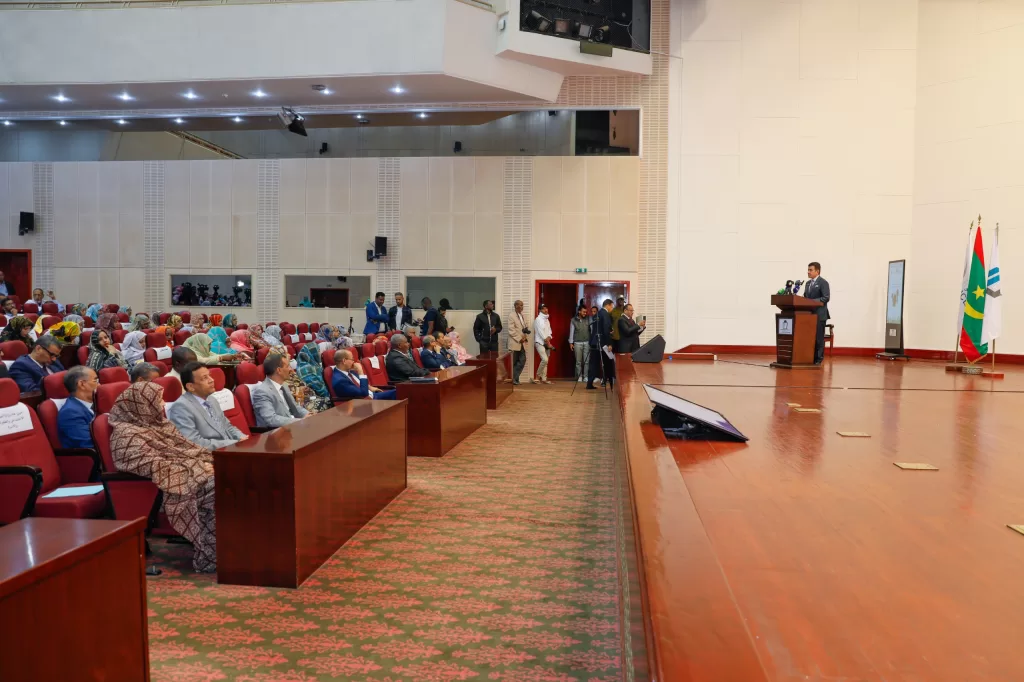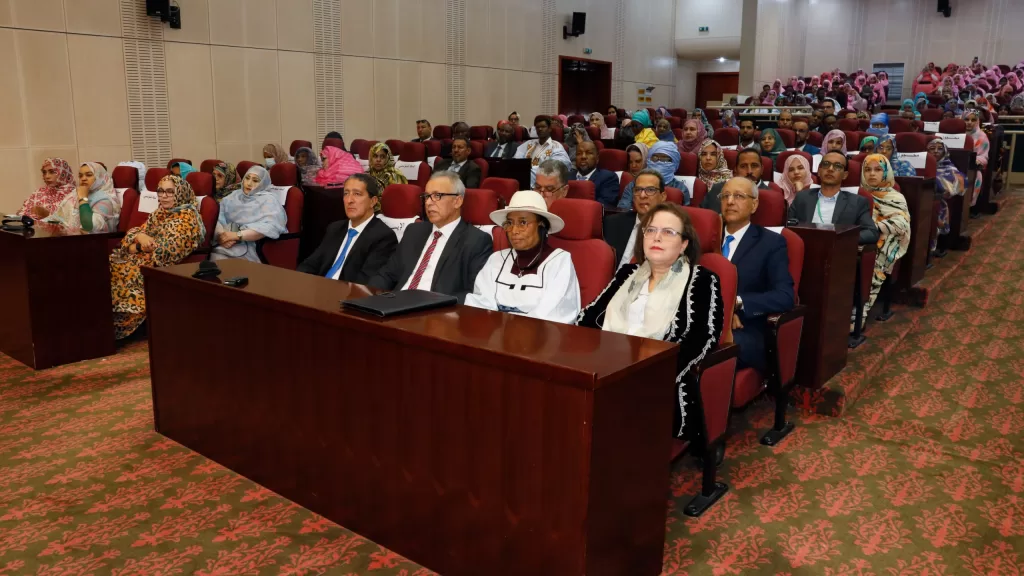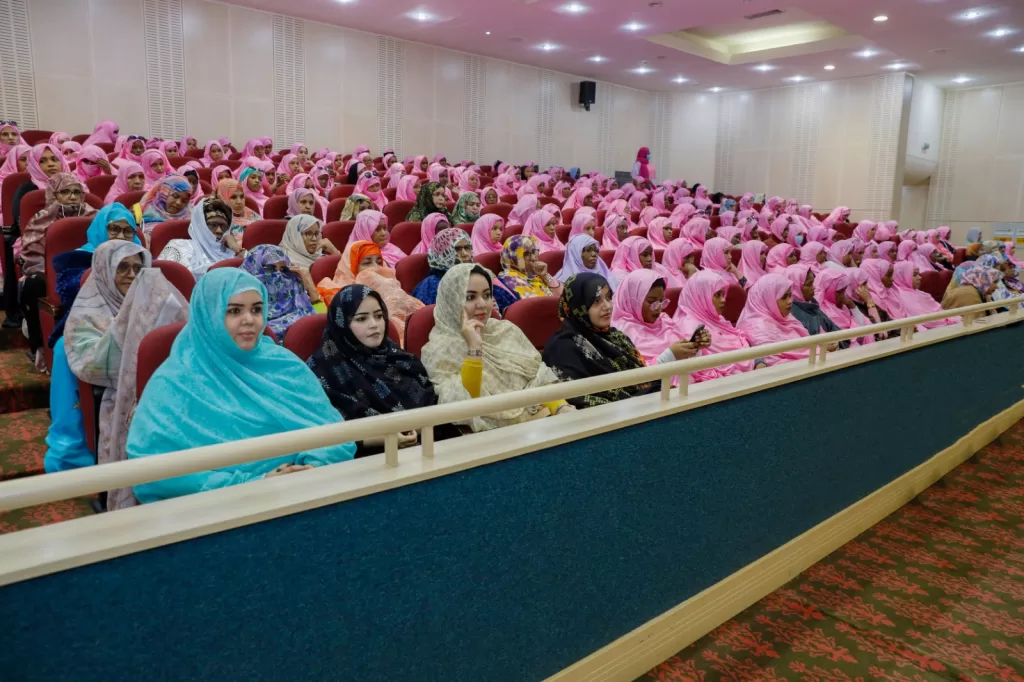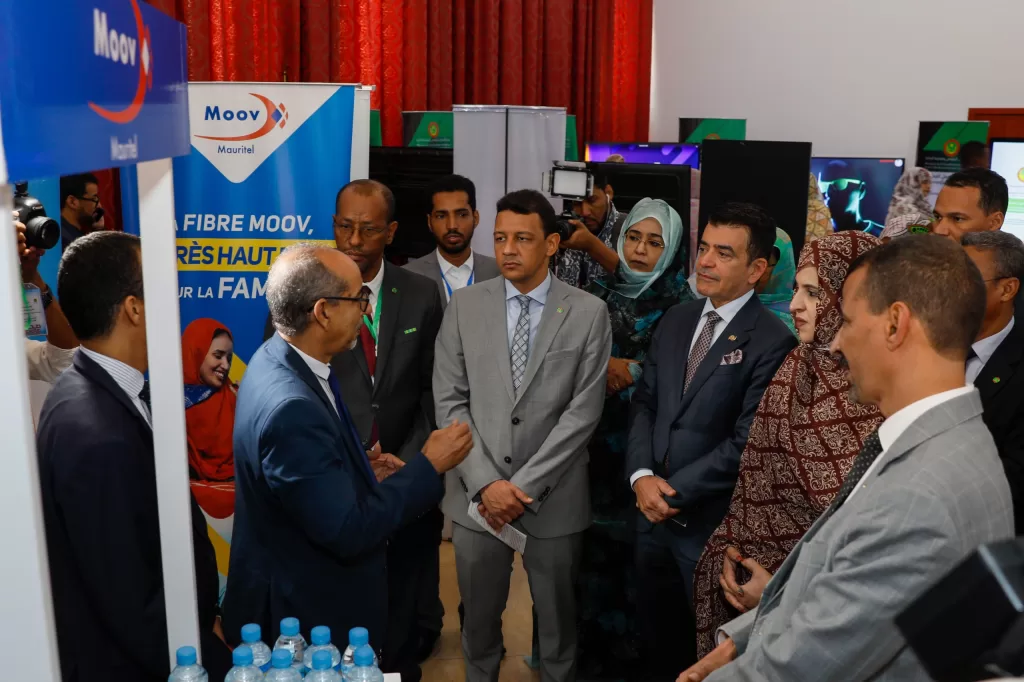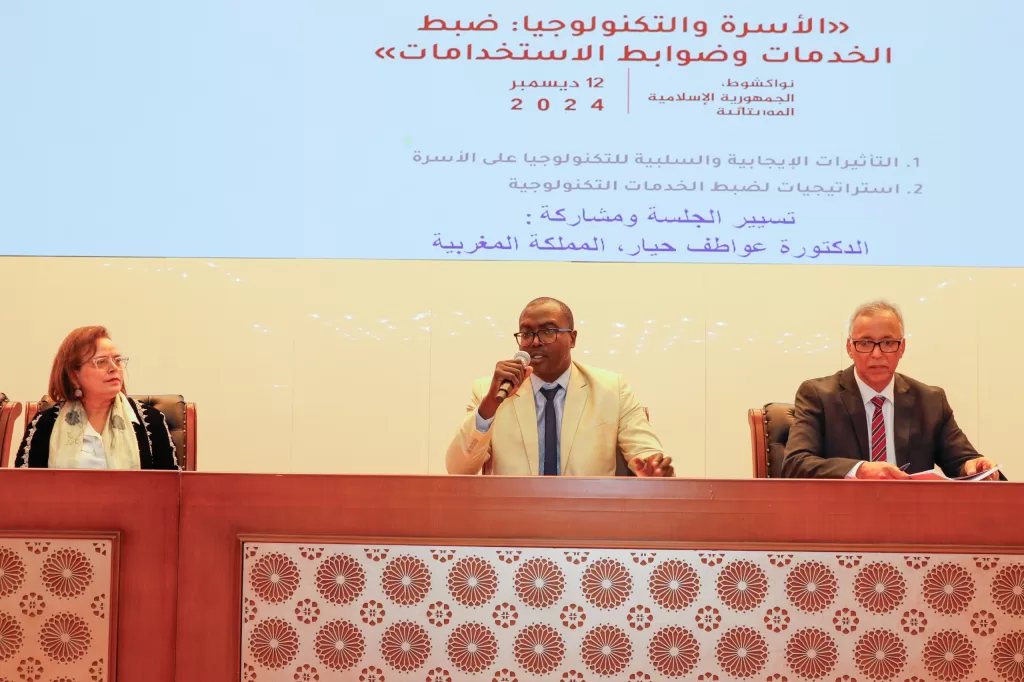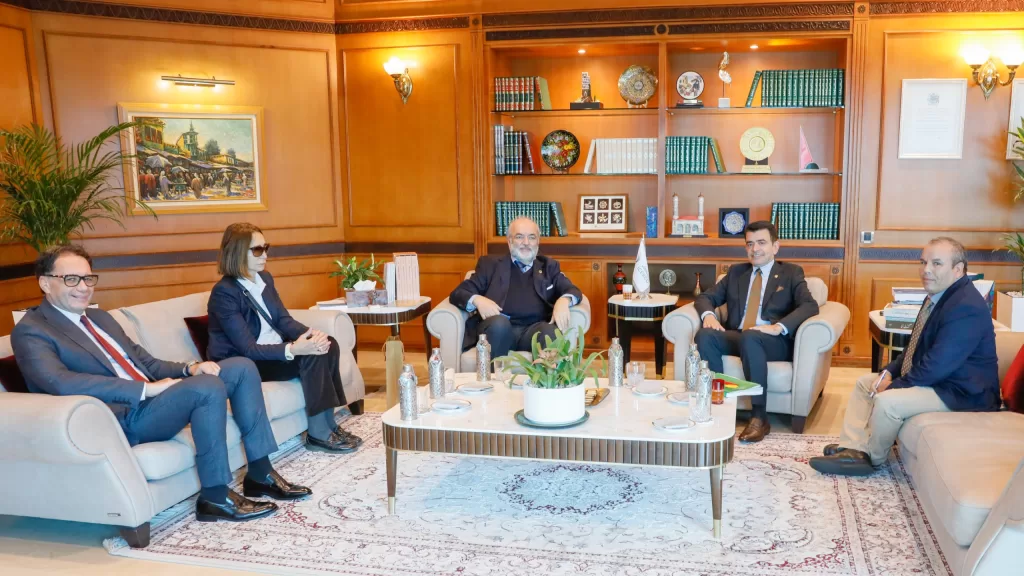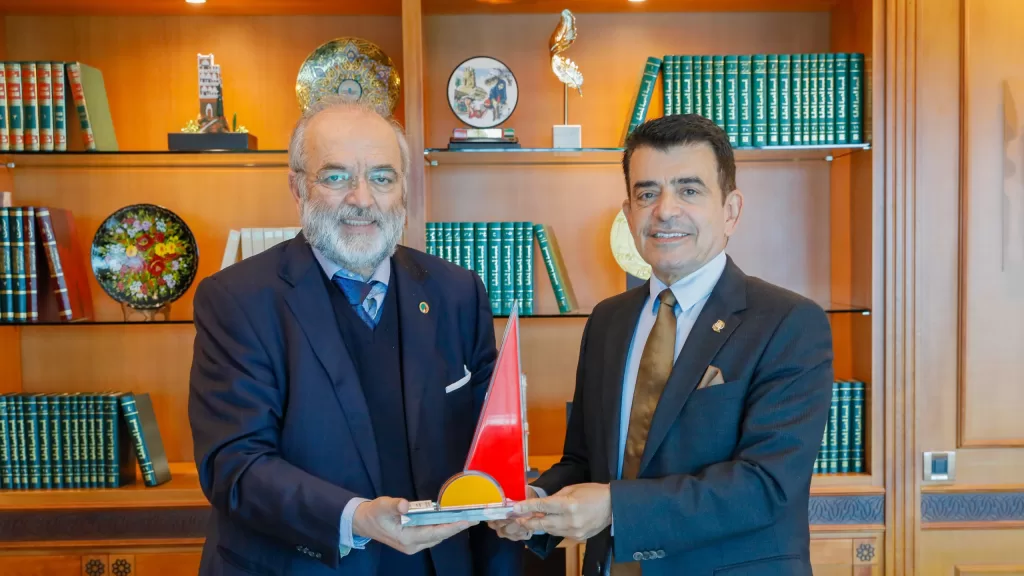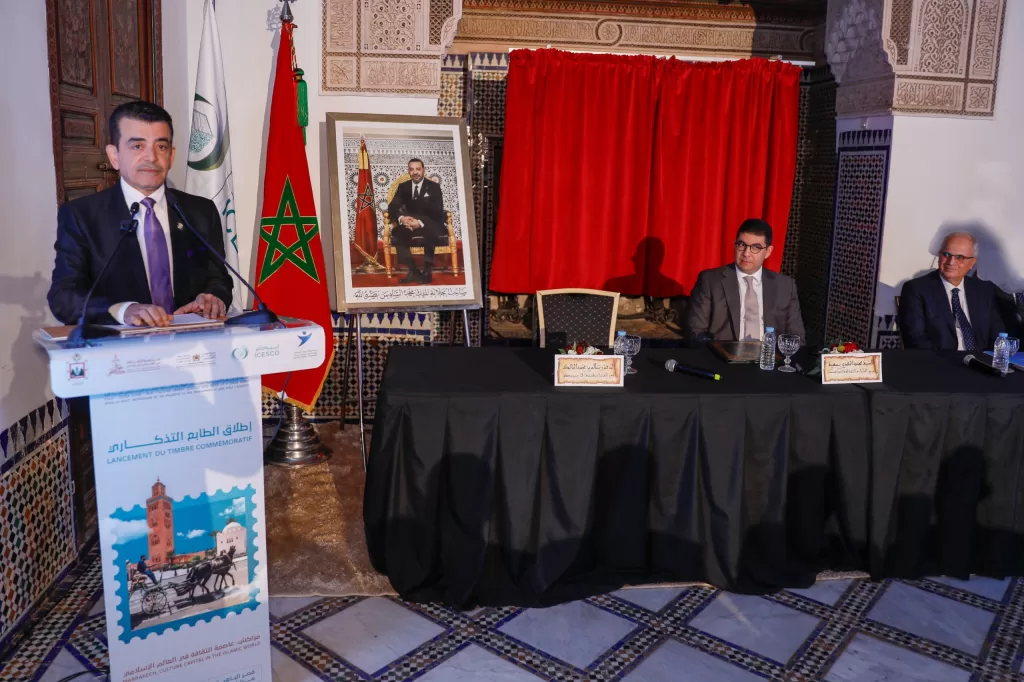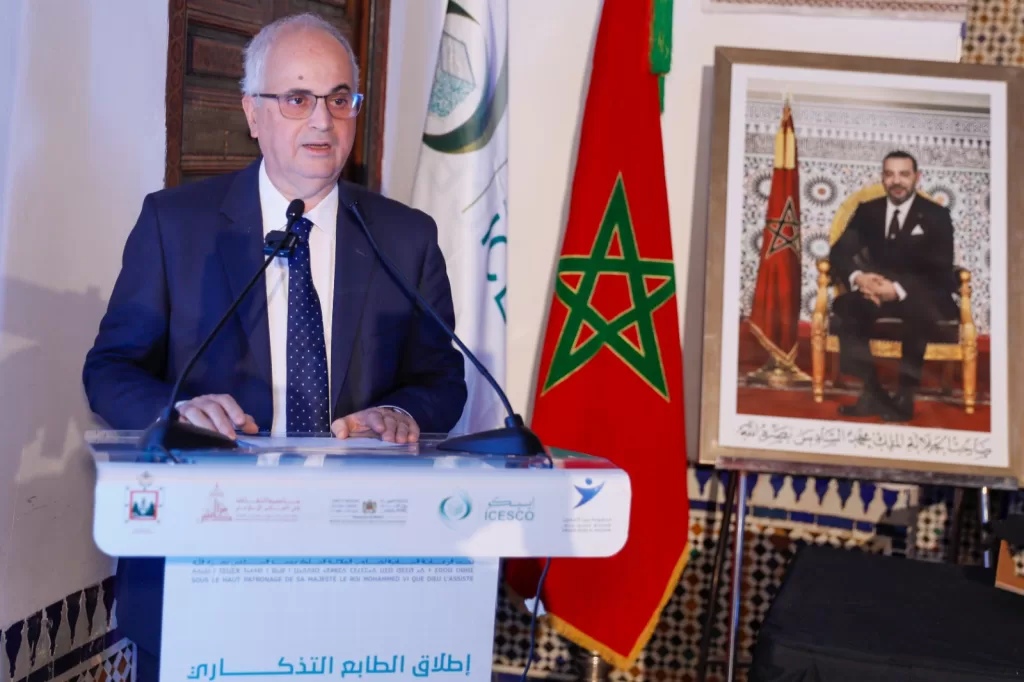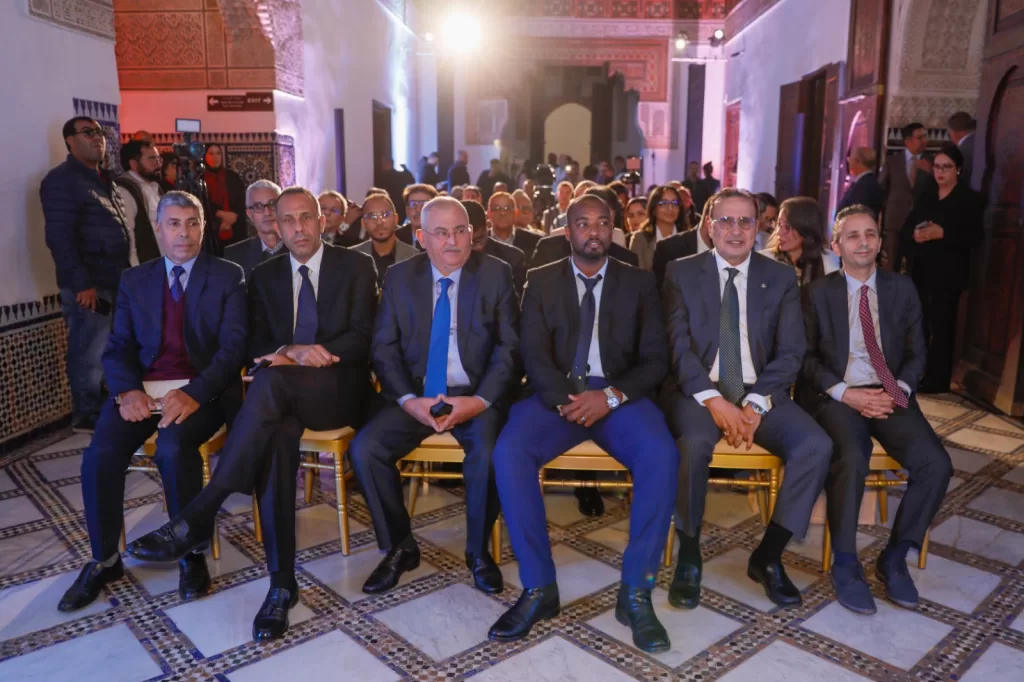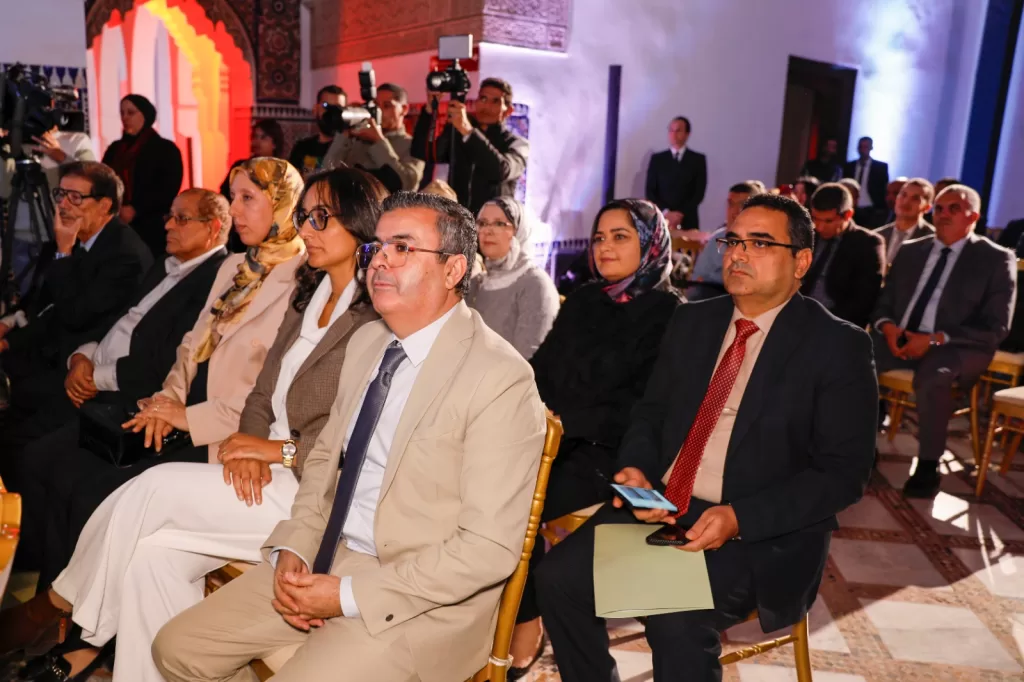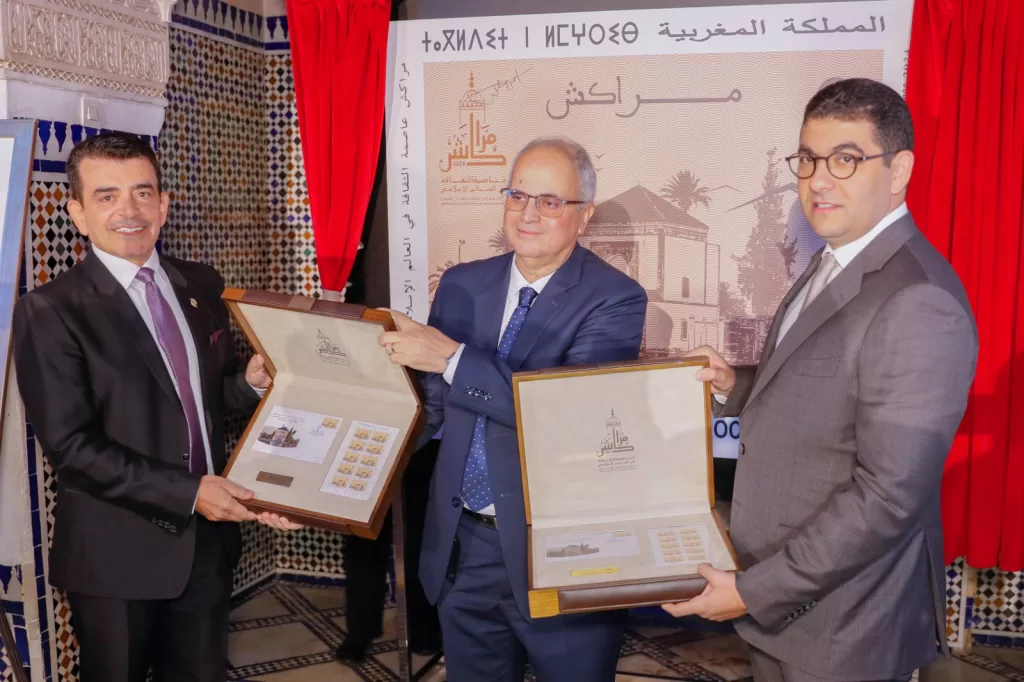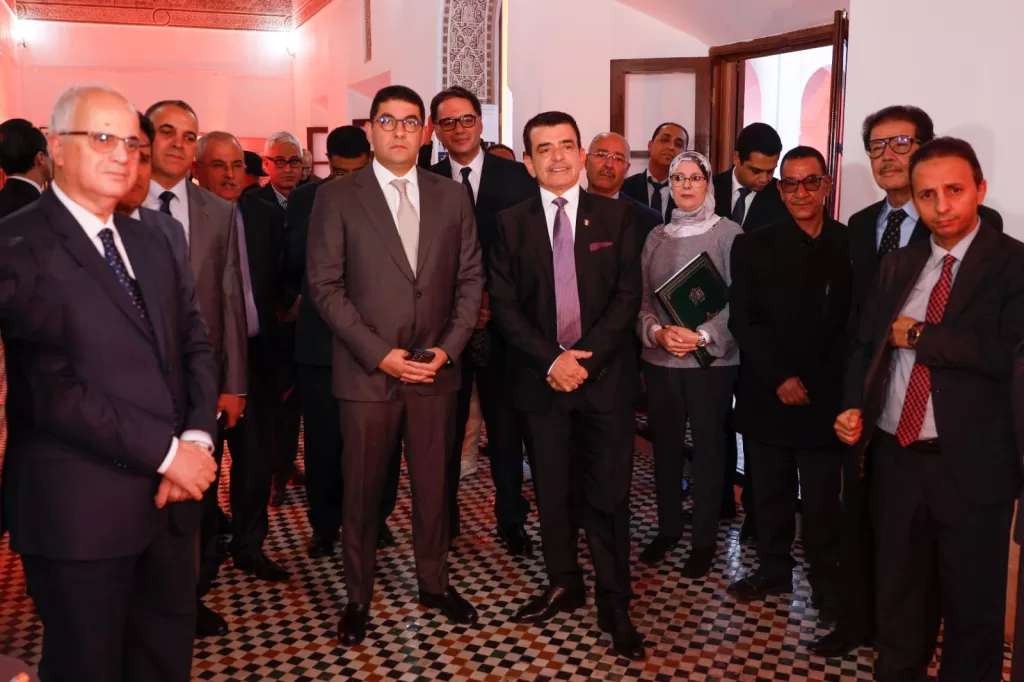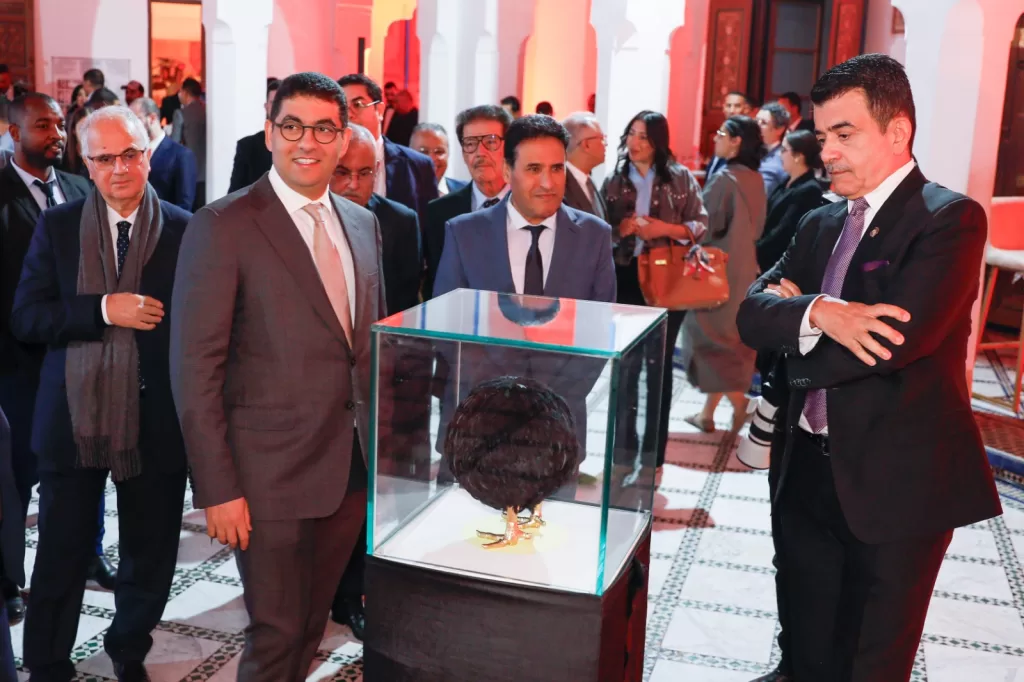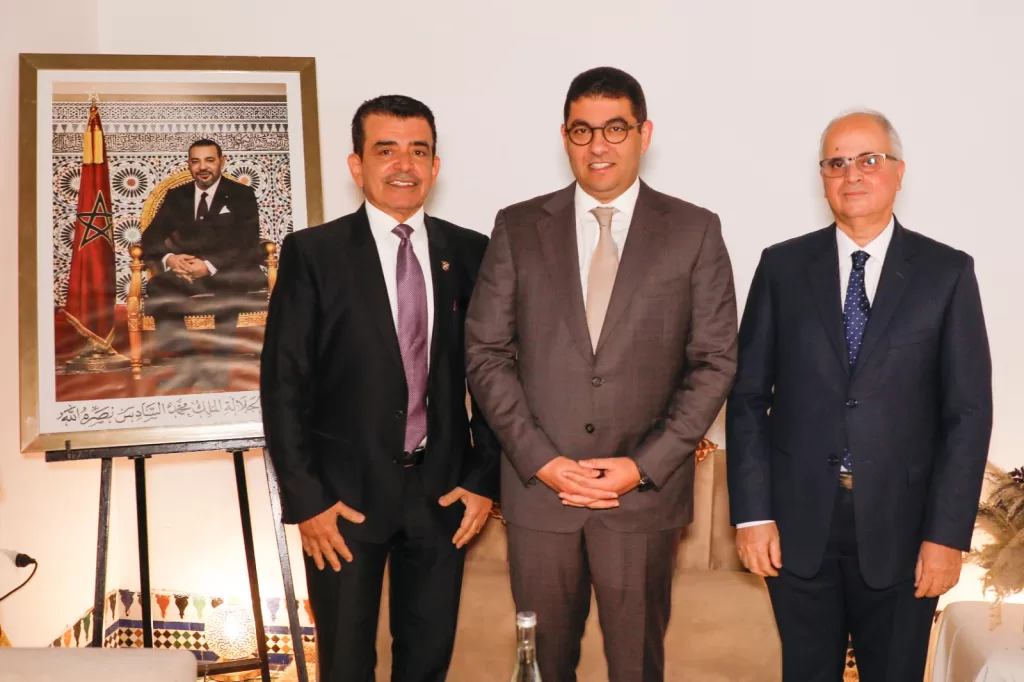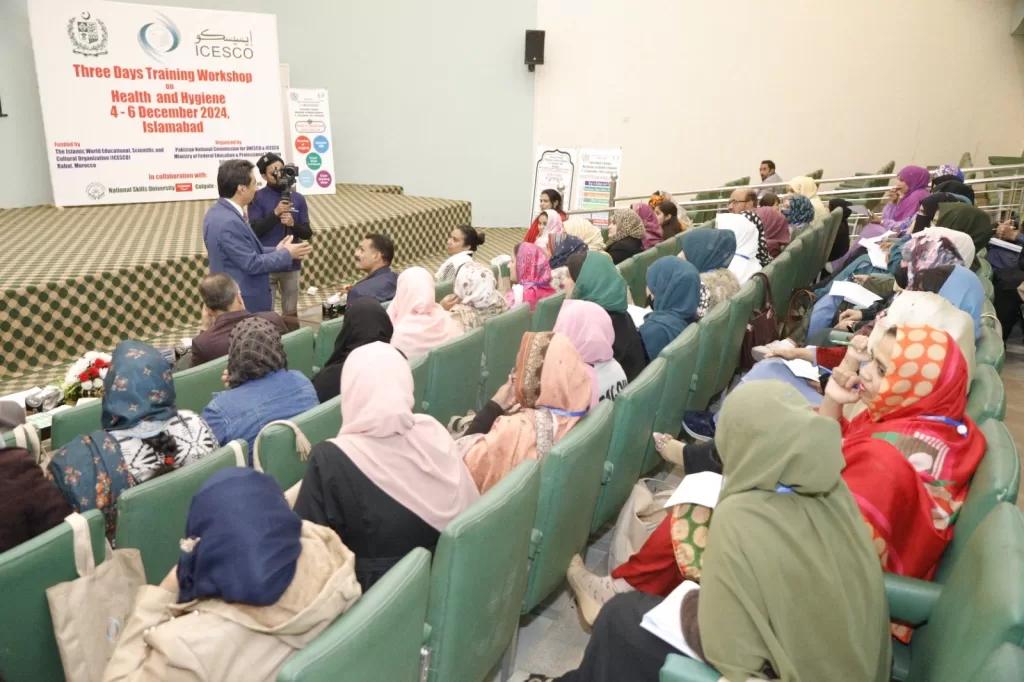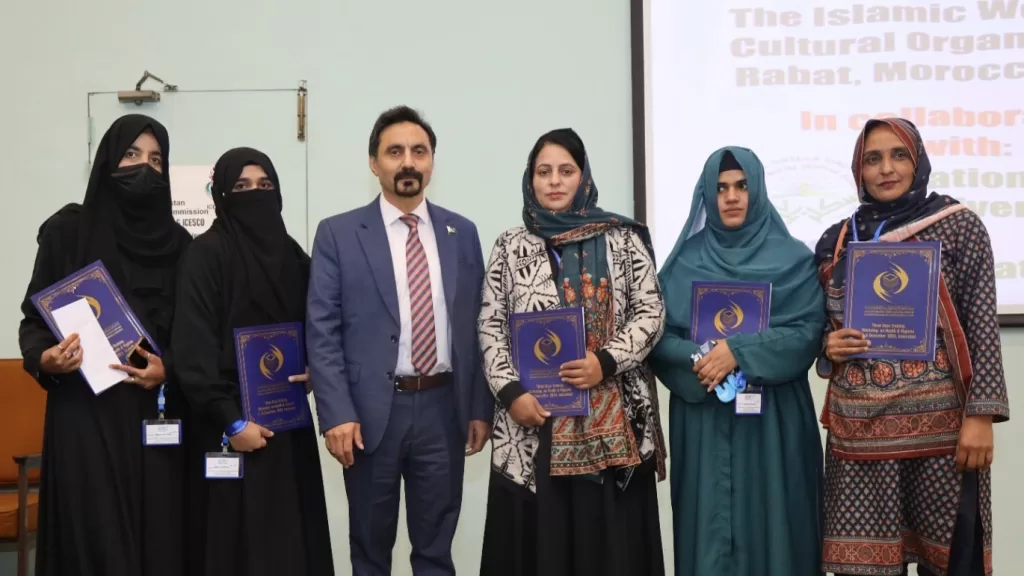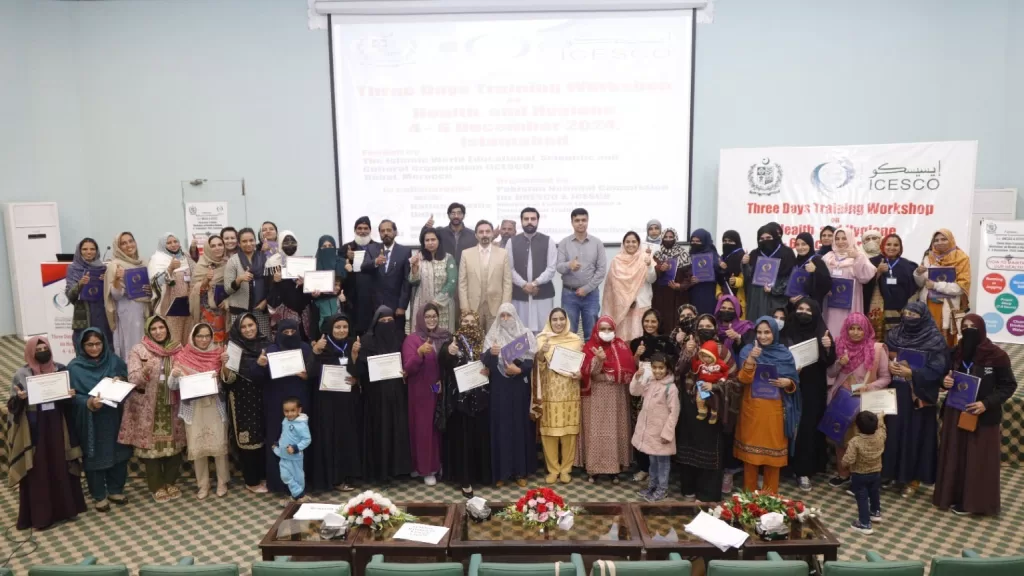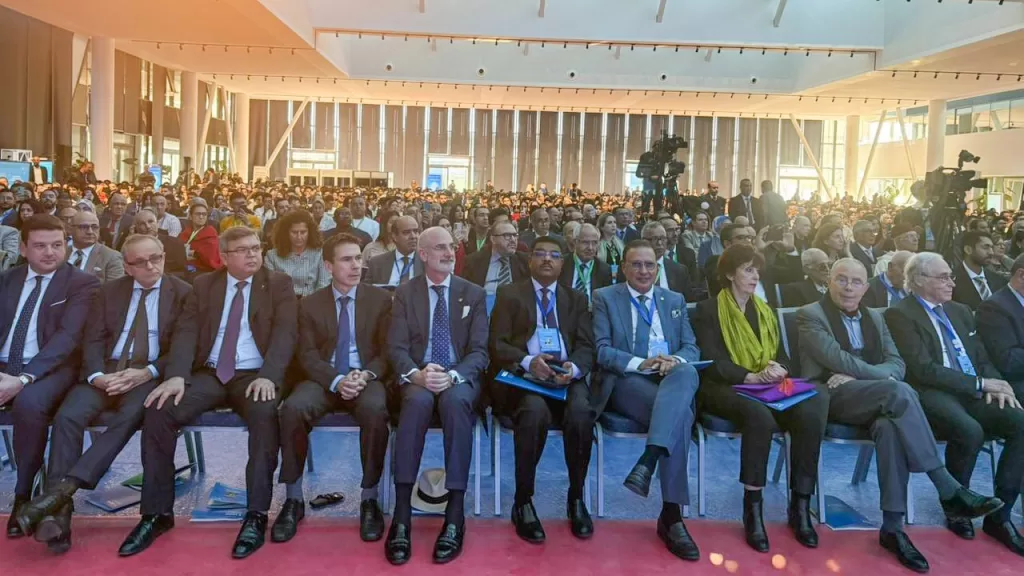The Islamic World Educational, Scientific and Cultural Organization (ICESCO) and the Federation of Universities of the Islamic World (FUIW), in cooperation with the Ministry of Digital Transformation and Modernization of Administration of Mauritania, and the Mauritanian National Commission for Education, Culture and Science, under the patronage of H.E. Dr. Maryam Mohamed Fadil Dah, First Lady of the Islamic Republic of Mauritania and ICESCO Goodwill Ambassador, organized the 3rd ICESCO International Science Conference on “Family and Technology: Regulating Services and Controlling Usage” in Nouakchott, Mauritania, at the Nouakchott Convention Center (Palais des Congrés) on Thursday 12 December 2024.
The Event brought together high-ranking ministers, officials, and experts in digital education and family psychology, in addition to representatives from technology companies to examine the impact of technology on the family, and develop strategies for regulating technological services.
The opening session commenced with a recitation of verses from the Holy Qur’an, followed by a video presentation highlighting the intersection of family and technology, the challenges posed by its usage, and the importance of awareness programs to address these issues. Subsequently, Mr. Mohamed Ould Sidi Abdallah, Secretary-General of the Mauritanian National Commission for Education, Culture, and Science, praised the pertinence of the Conference’s topics, emphasizing the value of its outcomes in analyzing trends and challenges related to digital technology usage.
In his remarks, Mr. Idoumou Islamou Abeidallah, President of the Nouakchott Regional Council, acknowledged the profound challenges posed by technological advancements to family cohesion and reaffirmed the Council’s commitment to supporting innovative initiatives aimed at addressing these challenges.
Mr. Ahmed Salem Ould Bede, Minister of Digital Transformation and Modernization of Administration of Mauritania, outlined his ministry’s achievements in advancing digital transformation to improve family life and foster comprehensive awareness of the risks associated with the misuse of technology.
Mr. Houssein Ould Meddou, Minister of Culture, Arts, Communication, and Parliamentary Relations, and spokesperson for the Mauritanian government, highlighted the family’s role as the primary and most important institution for child-rearing. He stressed the need for families to strike a balance between the benefits of modern advancements and societal values.
Dr. Salim M. AlMalik, Director-General of ICESCO, emphasized that the Conference’s theme provided a critical opportunity to explore the positive and negative impacts of digitalization on society, particularly its relationship with families. He called for in-depth discussions on family-related topics, including the integration of modern educational methods into school programs and their ability to connect the dynamics of family life with what schools provide, as well as the content consumed by children and youth in their interaction with smartphones.
The opening session concluded with remarks by Ms. Safiya Bint N’Tahah, Minister of Social Work, Childhood, and Family, who represented the First Lady of Mauritania. She emphasized that modern technologies, particularly those related to communication, compel society to find optimal ways to utilize them effectively.
Following the opening session, ICESCO’s Director-General and other participating ministers toured the technology exhibition held alongside the Conference, where institutions and companies showcased their latest tools and technological solutions.
The Conference’s scientific sessions then kicked-off, addressing topics such as “The Positive and Negative Impacts of Technology on the Family,” “Strategies for Regulating Technological Services,” and “Education and Technology in the Family to Ensure Safety and Privacy.”
Among the key outcomes of the Conference, which featured rich discussions and an exchange of ideas on regulating the relationship between the family and technology, was an agreement to issue guidebooks outlining safe technology usage practices within families. Additionally, there was a call to organize regular workshops aimed at enhancing digital education and promoting safety awareness, alongside efforts to develop applications to assist families in monitoring technology use effectively.
